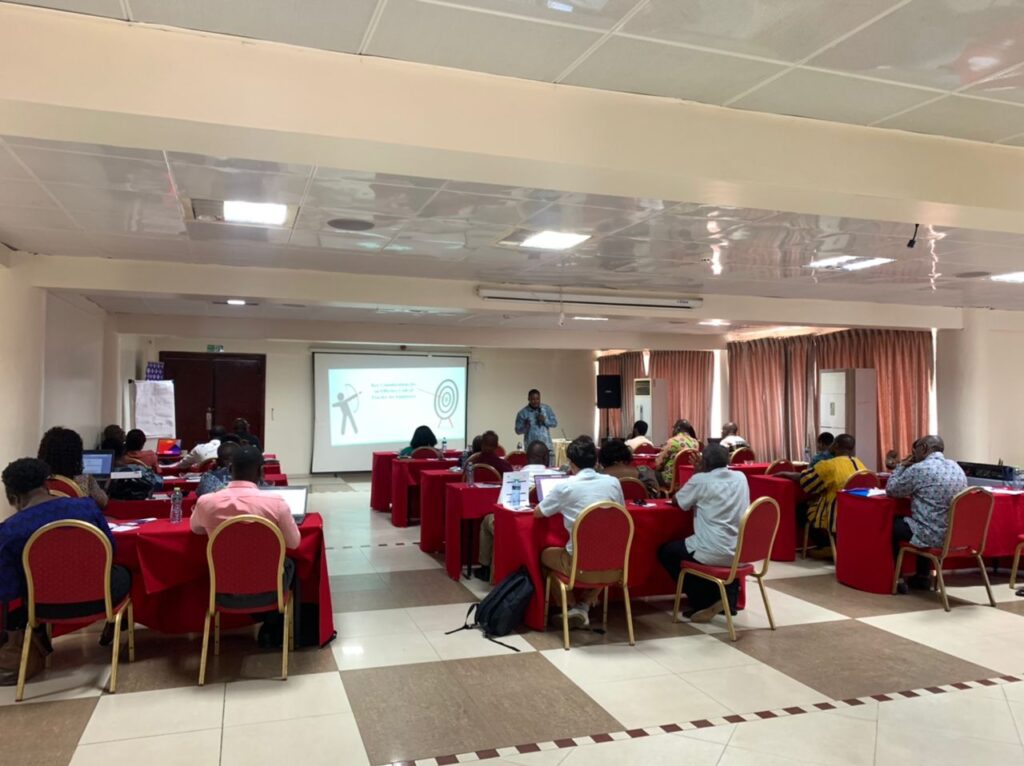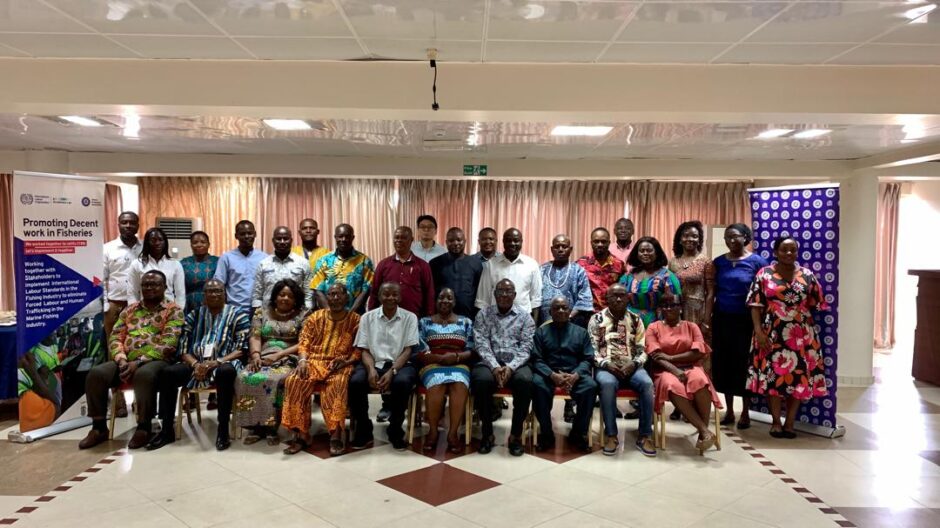Employers in the Fishing Sector of Ghana commit to developing a Code of Practice for Eliminating Child labour and Forced Labour
On July 11, 2024, the Ghana Employers’ Association (GEA), in collaboration with the 8.7 Accelerator Lab Project of the International Labour Organization (ILO), successfully conducted a stakeholder engagement session aimed at developing an Employers’ Code of Conduct for eliminating forced labour and child labour in Ghana’s fishing sector. The event was held at the Royal Nick Hotel in Tema and brought together a diverse group of stakeholders and Trade Associations committed to promoting ethical practices within the industry.
Objectives
The primary objective of the stakeholder engagement was to gather insights and recommendations from key stakeholders to inform the development of a comprehensive and practical Code of Conduct. This Code aims to guide employers in the fishing sector on best practices to eliminate forced labour and child labour, ensuring compliance with national and international labour standards.
Participants
The engagement session saw active participation from various stakeholders, including representatives from: National Fisheries Association of Ghana (NAFAG); Ghana National Canoe Fishermen Council (GNCFC); Ghana Industrial Trawlers Association (GITA); Ghana Tuna Association (GTA); Ghana Inshore Fisheries Association (GIFA), National Inland Canoe Fishermen Council (NICFC); Fisheries Commission (FC); Canoe and Fishing Gear Owners Association of Ghana (CAFGOAG); International Labour Organization (ILO); Council for Indigenous Business Associations (CIBA); and the Labour Department (LD).

Key Takeaways from the Meeting
1. Support for the Code of Practice: There was strong consensus on the need for a Code of Conduct to address forced labour and child labour in the fishing sector.
2. Clarity and Practicality: Stakeholders emphasized that the Code should be clear, practical, and easily implementable by employers.
3. Capacity Building: The need for capacity-building initiatives to help stakeholders understand and comply with the Code was highlighted.
4. Awareness Campaigns: Extensive awareness campaigns were recommended to educate all stakeholders about the new Code of Conduct and its benefits.
5. Support Mechanisms: Establishing support mechanisms, including financial and technical assistance, to help employers comply with the Code was suggested.
6. Monitoring and Evaluation: Implementing a robust monitoring and evaluation framework to ensure compliance and address any issues promptly was considered crucial.
Conclusion
This collaborative effort marks a significant step towards creating a responsible and ethical fishing industry in Ghana, free from forced labour and child labour. The perspectives gathered at the meeting will inform the development of a Code of Practice which will serve as a comprehensive guide for employers to implement ethical practices, ensure compliance with national and international labour standards, and promote a sustainable and socially responsible fishing industry.

